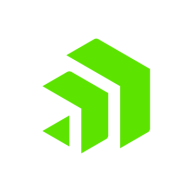

MongoDB and MarkLogic compete in the NoSQL database market. MongoDB holds an advantage in pricing and support, attracting clients with cost-effective solutions, while MarkLogic is seen as superior in comprehensive features, making it valuable for advanced functionality.
Features: MongoDB is known for its flexibility, scalability, and ease of integration with various applications, making it a popular choice for developers. It handles JSON-like documents and is highly scalable across cloud and on-premises environments. MarkLogic offers enterprise-grade features such as built-in search capabilities, XML document handling, and strong ACID compliance, which appeals to organizations requiring advanced data management.
Ease of Deployment and Customer Service: MongoDB's deployment process is straightforward and supported by a strong community, providing comprehensive documentation and various support options like online forums and tutorials. MarkLogic, although more complex in deployment, provides dedicated customer support with professional services and tailored solutions for large-scale implementations.
Pricing and ROI: MongoDB typically offers lower upfront costs, providing a cost-effective solution for businesses of all sizes. It presents a scalable model that grows with usage. MarkLogic, with high initial investments, delivers a compelling ROI for companies seeking extensive capabilities and integration flexibility. MongoDB attracts budget-conscious clients, while MarkLogic justifies its higher cost with advanced capabilities and comprehensive service offerings.


MongoDB is a flexible and scalable NoSQL database solution that efficiently handles both structured and unstructured data. It is known for its ease of use, JSON capabilities, and efficient data handling, making it ideal for developer-friendly environments.
MongoDB stands out with features like sharding, geospatial indexing, and its open-source nature. Users find it fast and appreciate its seamless integration into different applications. Despite being powerful, it remains straightforward to set up and use, bolstered by a clustering and aggregation framework that enhances its functionality. While generally appreciated for its cost-effectiveness and broad application compatibility, there is room for improvement in security, enterprise integration, and the creation of more robust training and documentation resources. Enhancing performance and adding support for traditional relational database concepts could also prove beneficial.
What are MongoDB's most important features?MongoDB finds widespread application across industries like healthcare, logistics, and telecommunications. It efficiently powers IoT platforms, data analytics, and document management systems. Its schema flexibility and JSON storage capabilities make it ideal for real-time processing and multi-server databases, essential for handling large-scale data volumes in modern applications.
We monitor all NoSQL Databases reviews to prevent fraudulent reviews and keep review quality high. We do not post reviews by company employees or direct competitors. We validate each review for authenticity via cross-reference with LinkedIn, and personal follow-up with the reviewer when necessary.